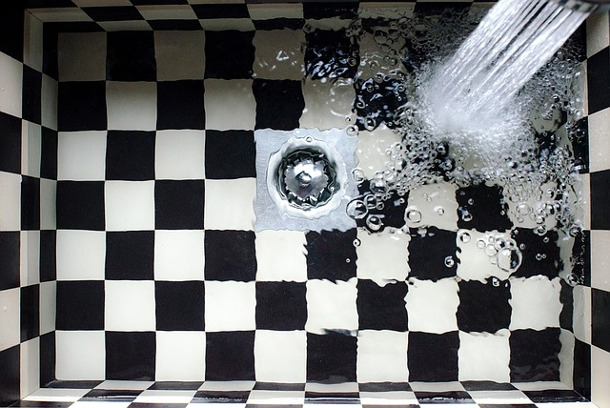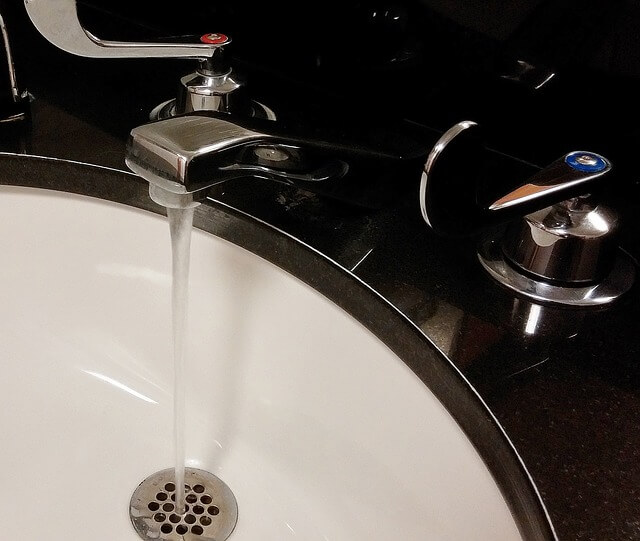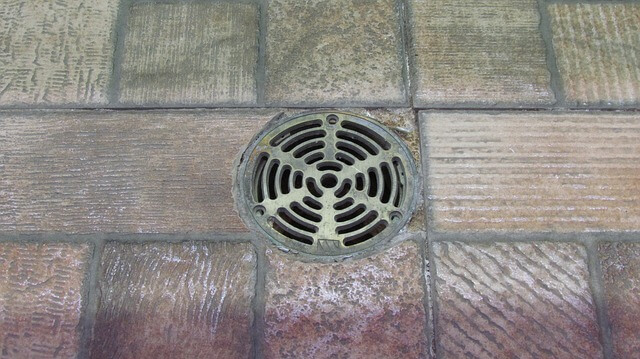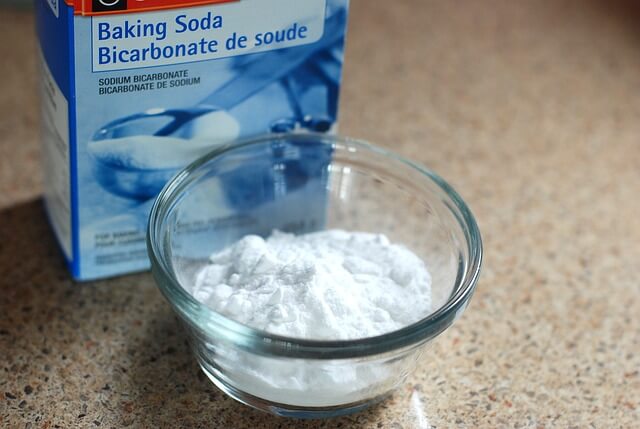The Nuisances of Clogged Up Drains and How to Prevent This from Happening

Does this sound familiar? You wake up in the morning and flush the toilet only to witness the gurgling pool of water coming back and realise it is totally blocked.
As a common occurrence as this is, it is annoying and stressful to deal with. But most mishaps do not appear out of the blue even if way!
Check what the ZSBC Cleaning Company has to share:
In this guide:
What Are the Most Common Cause of Blocked Drains?
Dealing with a clogged up drain is just one of the many chores needed for a proper moving out process. A standard house plumbing system comprises four essential sub-systems, which enable water to circulate: hot and cold water distribution, wastewater evacuation and pipe ventilation. Any of those can get blocked or damaged. There are different reasons for plumbing problems to occur, from structural issues, poor installation and bodged DIY repair jobs to grime buildup and physical objects being stuck down the drains.
Blockage in the wastewater evacuation systems requires expertise and professional assistance, whether it is tree roots damaging the main drain or floodwater jeopardising the usability of the building sewer. The same applies to obstructions in the pipe ventilation system when a specialist is recommended to remedy the issue.
Most commonly, blocked drainage is caused by household activities
In most cases, drain congestion is caused by daily household and personal hygiene activities such as showering, washing and going to the loo. Over time, pipe water flow may become slow or stop altogether. This happens especially when regular cleaning and maintenance of particular areas in the home are neglected and common-sense rules are ignored when the above activities are performed.
The main culprits of clogged up drains and pipes are:
- Soap scum build up – lime soap, also called soap scum, is the residual left behind when hard water minerals and soap fatty acids mix. Slowly, the residue builds up on the inside of the pipe walls, causing a blockage;
- Grease – grease naturally does not dilute well, hence, it easily accumulates in the kitchen main sink pipe and in the drainage system;
- Hair – washing hair down the shower drain is asking surely for trouble in the future;
- After builders residuals – even a minor renovation in your bathroom may cause clogged up drains if you cut corners during the cleaning process and try to wash builders dust, plaster residuals down the drain hole;
- Other large objects – it is not unheard of for toddlers trying to flush a toilet paper roll or their nappy down the toilet to your dismay.
The Negative Effects of a Clogged up Drainage System

Plumbing and drainage problems are not just a nuisance that stops you from going about your daily business when it comes to your deep cleaning checklist with household chores or activities.
If undealt with, it can lead to further complications with your home drainage system which can cause you hefty amounts. Depending on the cause of the blockage and its location in the complex pipe maze, the homeowner can expect one or more of the following adverse effects:
Bad odour caused by a clogged drain
We often associate unpleasant smells in the house with a blocked drain. We all know what stagnant water smells like, don’t we? And even if the odour is not necessarily toxic, it is definitely detrimental to our general wellbeing.
Who likes to come back from work to a home that feels unclean?
A buildup of gases in your pipework
More serious plumbing mishaps may lead to dangerously high levels of sewer gases, which build up slowly in the pipe ventilation system. A problem with vents, which hinders normal airflow, should be sorted out by a professional technician.
Structural issues
Some drain blockages lie deep into the pipe system and may be hidden and unbeknown to you for a long period. Whether the reasons for this is an incorrect DIY pipe installation during a renovation project, a broken pipe or a heavy downpour during stormy weather, they can result in structural damages to your property. The issues showcase in all kinds of forms and shapes – from water stains and warping wallpaper to outright rotten floorboards and weakened house foundations.
A Clogged Sink or Shower Drain May Endanger Health
In extreme cases, undealt-with plumbing problems may cause some health concerns. A foul odour and the accumulation of sewer gases in the vent system may make you feel more tired, apathetic or provoke headaches, not to mention cause the need to clean your boiler. Blockages in the outside drains will slowly make stagnant water become a ground for bacteria, mould infestations or it can even attract mosquitos.
All these are indirect health hazards, as they trigger allergies or can cause diseases.
The Signs of Pipeworks Being Blocked
Well, it is not rocket science to determine that your property suffers from a clogged up drain unless the plumbing problem is concealed deep into the underground drainage system and would require normally a repair service by an expert.
- Gurgling sound from your bathroom or kitchen sink
- An overflowing or slow draining kitchen sink
- Another common sign for blocked plumbing is a slow draining shower
- Toilet flushing much slower than usual, or even worse, the water backs up
- Funny smell around the house, especially around the bathroom/toilet and the kitchen sink
Paying attention to any of these signs and taking action preliminary will save you lots of headaches and unnecessary expenses.
Effective Solutions for Removing Blockages in the Drain
A good question to ask ourselves is can you fix a clogged drain in the kitchen or bathroom without calling a plumber?
It is not usually hard to distinguish a full-on clogged up drain from a partial blockage. The latter more often than not invokes a surge of uncharacteristic enthusiasm and the enviable hope of “I can do this”. And we can only support you in this quest for clearing blocked drains with several expert DIY tips and tricks you can follow to unblock a drain pipe.
Clearing Blocked Drains DIY – Necessary Supplies:
- Boiling hot water – Hot water is a key ingredient in the fight against drain blockages, caused by grease buildup. Boil a large quantity of water and pour it down the kitchen sink several times if you have to.
 Soda bicarbonate and vinegar – white vinegar and baking soda as a drain cleaner will do miracles with your drains and it is the best natural sink unblocker, an alternative to using caustic chemicals, which could damage the pipes, especially if the plumbing system is old. You can also add salt to the mixture and leave it to sit overnight to break up the accumulated grease and debris in the kitchen sink. Then, wash the pipe with hot water.
Soda bicarbonate and vinegar – white vinegar and baking soda as a drain cleaner will do miracles with your drains and it is the best natural sink unblocker, an alternative to using caustic chemicals, which could damage the pipes, especially if the plumbing system is old. You can also add salt to the mixture and leave it to sit overnight to break up the accumulated grease and debris in the kitchen sink. Then, wash the pipe with hot water.- Ammonia – This chemical will help you with the disintegration of soap scum buildups in the bathroom drainage system. Pay heed not to mix ammonia with bleach or vinegar as they react in a way that the new substance produces toxic fumes.
- Coke – Cola contains phosphoric acid, which is a good dissolvent of limescale, rust and lime soap. Just pour a room-temperature 2l bottle of Coke into the clogged up drain and hope for the best. You can apply the Coke solution in combination with other tips, we have listed here, and alternate using hot water, soda and a plunger if needs be.
- A plunger – Plungers almost always lead to a happy ending in the “unblock the drain” story if the problem has been caught in time. Don’t forget to cover yourself up well if you use it for a blocked toilet.
- A plumber’s snake – The device is proven to successfully assist in DIY attempts to solve plumbing mishaps but use it if you know what you are doing or ask someone else who knows.
How to Unblock a Clogged Kitchen Sink?
 As the most commonly clogged pipe, the kitchen sink drainage must be kept clean with nothing but liquids getting in it. The best way to unblock a sink is:
As the most commonly clogged pipe, the kitchen sink drainage must be kept clean with nothing but liquids getting in it. The best way to unblock a sink is:
- Baking soda and white vinegar – pour a cup of baking soda on the sink drain so it covers it fully covers the strainer;
- White vinegar – pour a cup of white vinegar so it covers the baking soda so they interact chemically and dissolve any debris that clogs your drain;
- Hot water – after 5-10 minutes pour hot water so it flushes down the vinegar and baking soda;
- Turn your tap water and see if the blockage persist. If yes, repeat the procedure again.
If this method does not work, another useful drain unclogger is the good old plunger.
How to Unclog a Sink with a Plunger?
- Fill the sink with 1/3 warm water;
- Place the plunger over the drain so it covers it fully;
- Work the plunger up and down fast so the debris blocking the pipes detach from the pipes and unclog the drainage;
- Remove the plunger and see if water goes in the drainage. Repeat the process if the drain is not fully unclogged.
How to Unblock a Shower Drain?
 Shower drain blockage is usually caused by hair that is caught by the bend that’s at the top of the drainage, just below the strainer. When a lot of hair gets caught, it blocks the pipe fully and water begins to come back. Other causes might be debris build up inside the drainage such as soap scum or limescale. If that’s the case, baking soda, and white vinegar cleaning process, as explained in the kitchen sink unclogging, should be applied.
Shower drain blockage is usually caused by hair that is caught by the bend that’s at the top of the drainage, just below the strainer. When a lot of hair gets caught, it blocks the pipe fully and water begins to come back. Other causes might be debris build up inside the drainage such as soap scum or limescale. If that’s the case, baking soda, and white vinegar cleaning process, as explained in the kitchen sink unclogging, should be applied.
- Remove the strainer on your shower drainage and clean it thoroughly
- Check if there is hair or other build-up and clean it. If there is a plastic/rubber protector, remove, clean and put it back in.
- If it’s not the hair that has clogged your shower drainage, use baking soda and white vinegar, let the mixture stay for 5-10 minutes and flush with hot water. Repeat until the drain is unblocked.
- Another method is to use a plunger or a drain snake.
How to Prevent Drains from Getting Clogged Up?
It might be hard to see a major plumbing problem coming if it is caused by flooding, tree roots growing up the main drain or a broken pipe but you can at least ensure that your own actions at home do not add to the risk.
Blocked Drains Dos & Don’ts:
- Do not throw grease, food scraps or coffee ground residuals down the sink;
- Prevent pipes from unwanted buildups by cleaning them with the above-mentioned solutions as a preventive measure now and again, whether you throw down the leftover contents of a bottle of Coke from last night in the sink or pour some lemon juice, mixed with soda;
- Do kindly ask your teenage daughter to stop washing heedlessly hairs down the drain hole when taking a shower;
- Install mesh devices on every drain hole;
- If you have kids, stick a pictogram or a sign on the toilet: “Do not throw anything in the toilet but toilet paper”;
- Dispose of dental floss correctly even if it is tempting to wash it down the sink;
- Resort to a professional after builders cleaning service after a refurbishment project as residuals from builders materials will clog up badly the bathroom drain if the place is cleaned hastily.

 Soda bicarbonate and vinegar – white vinegar and baking soda as a drain cleaner will do miracles with your drains and it is the best natural sink unblocker, an alternative to using caustic chemicals, which could damage the pipes, especially if the plumbing system is old. You can also add salt to the mixture and leave it to sit overnight to break up the accumulated grease and debris in the kitchen sink. Then, wash the pipe with hot water.
Soda bicarbonate and vinegar – white vinegar and baking soda as a drain cleaner will do miracles with your drains and it is the best natural sink unblocker, an alternative to using caustic chemicals, which could damage the pipes, especially if the plumbing system is old. You can also add salt to the mixture and leave it to sit overnight to break up the accumulated grease and debris in the kitchen sink. Then, wash the pipe with hot water.